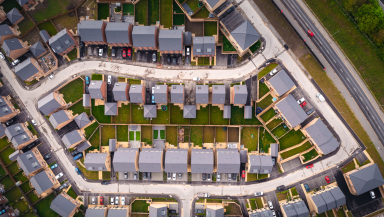Church Leaders Respond to Government’s Financial Plans

The Church of England has expressed a cautiously optimistic view on the government’s recent spending announcements. Helen-Ann Hartley, who oversees economic and business affairs for the church, alongside David Walker, the Bishop of Manchester, described the fiscal review as “promising.”
Both church leaders commended the decision to allocate additional funds towards the construction of new homes and the National Health Service (NHS). They expressed hope that the government’s initiatives to distribute wealth and opportunities more evenly across the nation would be realized.
Support for increased investment in housing and healthcare is common among both religious figures and the general public. However, the question remains whether increased spending alone can effectively address these issues.
To illustrate, discussions on housing often split into two perspectives. On one side, there are calls for more housing development, while on the other, concerns over immigration levels are raised. Basic economic principles indicate that both limited housing supply and high demand from migration contribute to the issue.
With net migration figures exceeding 400,000 people last year, it raises the question of whether it is feasible or even beneficial for any government to match this with an equivalent number of new homes annually.
Regarding NHS funding, historical patterns show continuous financial input without significant improvements. A former minister once joked that publicly burning the extra funds allocated to the NHS might please the public just as much as actual spending, highlighting skepticism over the effectiveness of merely increasing budgets.
Reassessing the healthcare model, which dates back to the 1940s, might be necessary, especially considering the country’s significant debt levels.
While the bishops appreciated increased funding in certain areas, they expressed reservations about the government’s plans to expand arms production, advocating instead for more focus on development and diplomacy.
They stated, “We should not neglect our duty of care to some of the poorest people in the world, including many within the Anglican Communion.”
Indeed, national security is crucial, but the bishops emphasize the importance of addressing conflict at its roots through diplomatic and developmental efforts. This approach also acknowledges the limits of how many immigrants developed countries can accommodate without risking societal strain.
Finally, Britain’s current government debt stands at approximately £2.8 trillion, equating to about 100% of the country’s GDP. This is a significant increase from the early 2000s when it was below 40% of GDP. The sustainability of ongoing deficit spending remains a critical concern.
This article was originally written by www.christiantoday.com







Be First to Comment